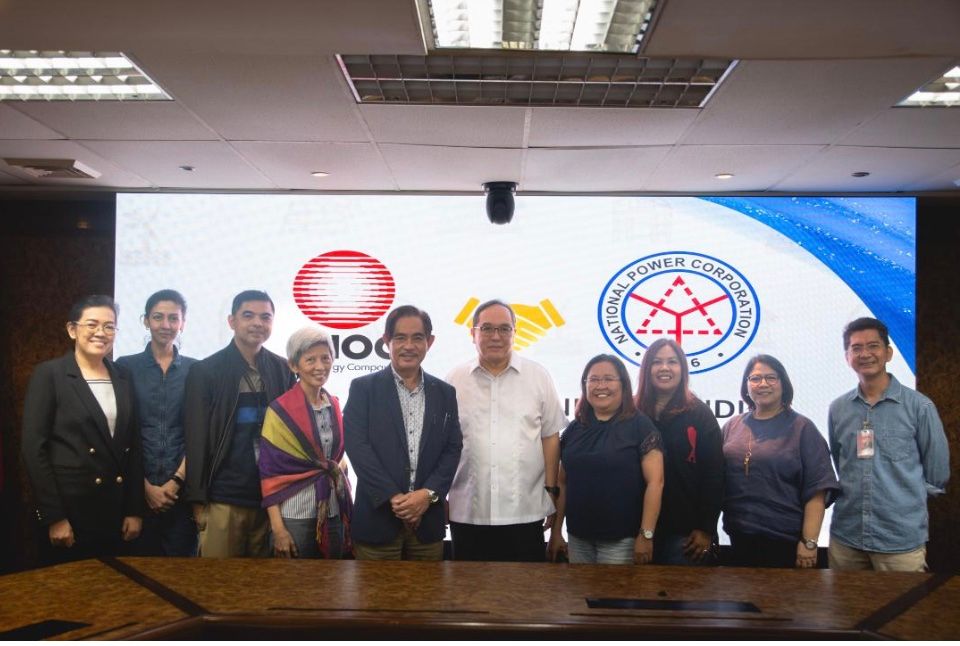At A Glance
- Hybrid systems, in particular, exhibit the transformative blend of conventional technologies and renewable energy resources – and these are aligned as ideal solution to energizing areas far-flung areas and even industrial outposts that are not physically linked to major grids; while also taking on game-changing contribution to the decarbonization of the country's energy systems for planetary preservation.
State-run firms Philippine National Oil Company (PNOC) and the National Power Corporation (NPC) have inked a memorandum of understanding (MOU) that will cement their collaboration on setting up a pilot project for the rollout of hybrid systems leaning on solar and wind farms in energizing off-grid sites that are under the Small Power Utilities Group (SPUG) jurisdictions.
“This initiative marks a significant step towards sustainable energy solutions for isolated and off-grid regions in the Philippines,” the two government-run firms noted in a statement.
PNOC President and CEO Oliver B. Butalid divulged that the pilot installation will be concretized in Masbate and the end-goal is “to reduce generation costs for residents and decrease subsidies shouldered by Filipinos.”
When that demonstration project yields successful results, the more expansive plan is to scale that up commercially to the other NPC-administered SPUG domains.
As specified in the deal, the tie-up of PNOC and NPC targets to “install test units of the hybrid system in select NPC-SPUG sites to evaluate their performance and feasibility.”
SPUG is placed under the charge of NPC, being a key part of its residual function following the divestment of its major power assets following the Philippine power sector’s restructuring as prescribed under the Electric Power Industry Reform Act

State-run firms PNOC and NPC are partnering for the deployment of hybrid systems as cleaner and cost-competitive solution in the energization of off-grid areas.
Hybrid systems, in particular, exhibit the transformative blend of conventional technologies and renewable energy resources – and these are aligned as ideal solution to energizing areas far-flung areas and even industrial outposts that are not physically linked to major grids; while also taking on game-changing contribution to the decarbonization of the country’s energy systems for planetary preservation.
NPC President and CEO Fernando Y. Roxas reiterated that “the partnership with PNOC will reduce generation costs and benefit Filipinos in SPUG areas,” as he also echoed hope on potentially replicating success of the pilot undertaking “to all SPUG areas and even to islands that are still in the planning stages for electrification.”
He similarly stated that the project “highlights the strategic importance of renewable energy in enhancing energy security and sustainability in the Philippines,” and the duo emphasized their shared vision on “leveraging innovative technologies to address the country's energy challenges.”
In the case of the Philippines, its archipelagic frame relentlessly posed hurdles in providing energy services across many islands – and through decades, many of them had to endure high reliance on environmentally detrimental and costly diesel-fed generation.
With the PNOC-NPC tie-up on the buildout of hybrid systems for SPUG areas, the two firms vouched on their commitment “to innovate and reduce dependence on diesel fuel, particularly in off-grid areas.”
PNOC primarily noted that “the project includes integrating necessary instruments and accessories into existing diesel plants, with a focus on areas with favorable wind conditions.”
As fleshed out in the MOU, “NPC will propose potential sites for the technical demonstration, review the project design for compliance with standards, facilitate the integration of the hybrid system into their existing infrastructure and dispatch the generated electricity.”
To complement that, PNOC will have to “select feasible sites for the installation, install the hybrid system, cover necessary expenses, and jointly monitor and evaluate the system's performance with NPC. “